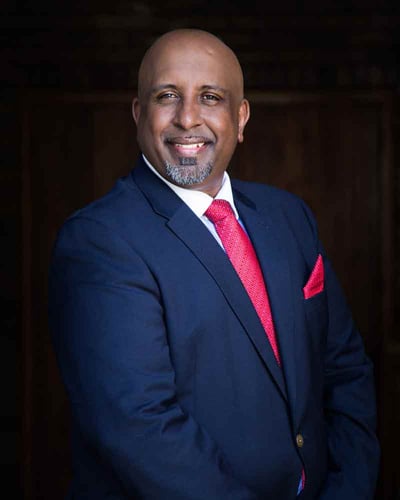Benjiman Still Realizing Benefits after Choosing Trevecca Ed.D. from Global List of Doctorate Options
 After many years of working in higher education for the Church of the Nazarene in Africa, South African native Dr. Gabriel Benjiman decided it was time to pursue a doctorate. He was already familiar with many of the Nazarene institutions, but was looking for a program that went beyond the basics.
After many years of working in higher education for the Church of the Nazarene in Africa, South African native Dr. Gabriel Benjiman decided it was time to pursue a doctorate. He was already familiar with many of the Nazarene institutions, but was looking for a program that went beyond the basics.
“When I took on the role of regional education coordinator for the Africa region in 2016, one of the things I told my then director was that I would like to locate a doctoral program that didn’t just accommodate my thinking theologically or philosophically, but one that would also help me organizationally,” Benjiman said.
After a lot of searching, he ended up at Trevecca in the Doctor of Education in leadership (Ed.D) program and it did not disappoint. He was challenged as a student, something that he felt was necessary for a meaningful experience and degree.
“I found Trevecca to be a serious contender in terms of academic work. I did not want one of those doctorates that means nothing. You need to put in the hard work,” said Benjiman. “But it is the kind of work that distinguishes you. And you want to be distinguished by a well earned doctorate.”
Part of what made Trevecca’s Ed.D program appealing was the structure, which allowed him to work on his dissertation while taking his classes, something that is not an option in every doctoral program.
“It was not a series of classes and then engaging the dissertation, it was simultaneous. You do your coursework and you write the chapter of your dissertation during that block of courses and that is where Trevecca took the upperhand,” Benjiman said. “I had the opportunity to study elsewhere, but I would’ve had to do the whole block of coursework and then spend another two years after that writing my dissertation.”
He also found support from his professors, who took an interest in the research for his dissertation exploring the vocational readiness of clergy in the African context. They encouraged him to go deeper in his studies in order to reach the most helpful and accurate conclusions.
“I needed the kind of support that would say ‘Gabe, we understand where you are in your line of thinking and we need you to push a little deeper into that area that you are researching,’ without dismissing the importance of my work on the continent,” said Benjiman. “I found that kind of support and the right kind of questions were being asked of me. All of my professors, particularly those who supervised my dissertation, were very invested.”
He also had the opportunity to explore subjects he hadn’t previously, including statistics and math, where his exposure had been limited due to the Apartheid. Leadership is a central focus in the program, and Benjiman was exposed to ideas that encouraged him to imagine what was possible for his position and for education in the Church of the Nazarene.
“From a behavioral and scientific perspective, Trevecca’s offering in leadership made me understand leaders better, particularly organizational leadership,” Benjiman said. “I began to embrace the idea that we can design organizations in a way that brings out the best in the leader, and we can train leaders in a way that brings out the best in the organization.”
After graduating in December of 2019, he continued in his position as regional education coordinator and has been working directly to develop and encourage leaders for the good of African educational institutions.
“I am able to help our leaders. I get to oversee and work with higher educational institutions and the leaders of those institutions in multiple capacities, including coaching, support and advocacy,” Benjiman said. “That keeps Nazarene educational spaces cutting edge in the marketplace. We are able to draw those who are not just intent on academic work, but those who are genuinely busy with the work of improving lives. We want academics with the heart of a pastor and the head of a scholar.”
Despite the hard work it required, the support, structure and dissertation results of Trevecca’s Ed.D. allowed Benjiman to be successful. He advises others who are considering it to focus on their own capabilities and think of the long-term benefits.
“It isn’t child’s play. It is hard but it is possible. You need to be able to say, ‘people before me have had different journeys but they’ve still done it and so can I,’” Benjiman said. “My research produced data that validated my work and that was the capstone for me.”
